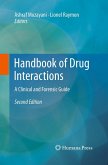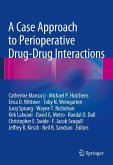When we learn from a patient, clinician, or medical record that a drug has been discontinued, it is logical to ask why. The drug may no longer be needed; it may not have produced the desired effect; it may have produced an adverse reaction; a better drug may be available to replace the original drug. The patient may have discontinued the drug because he or she could not see why it was necessary; or the patient may have discontinued the drug because of unpleasant side effects. A drug may not work because its absorption is reduced by physical or chemical interaction with another drug or a food component. It may also not work because the patient's metabolism is speeded up or in hibited to an extent such that the desired duration of drug action is not obtained. Such an effect may be related to a change in diet. Side effects may be related to consumption of specific foods or bev erages or to an overall change in nutritional status. Drug-food and drug-alcohol incompatibility reactions are frequent but are avoidable if a patient is warned of their possible occurrence. Drugs may also produce nutritional deficiencies, especially in a patient whose diet is marginal in those nutrients depleted by the particular drug. Careful prescribing practices together with appropriate nutrient supplements will serve to reduce the risk of these incompatibilities.
Bitte wählen Sie Ihr Anliegen aus.
Rechnungen
Retourenschein anfordern
Bestellstatus
Storno








